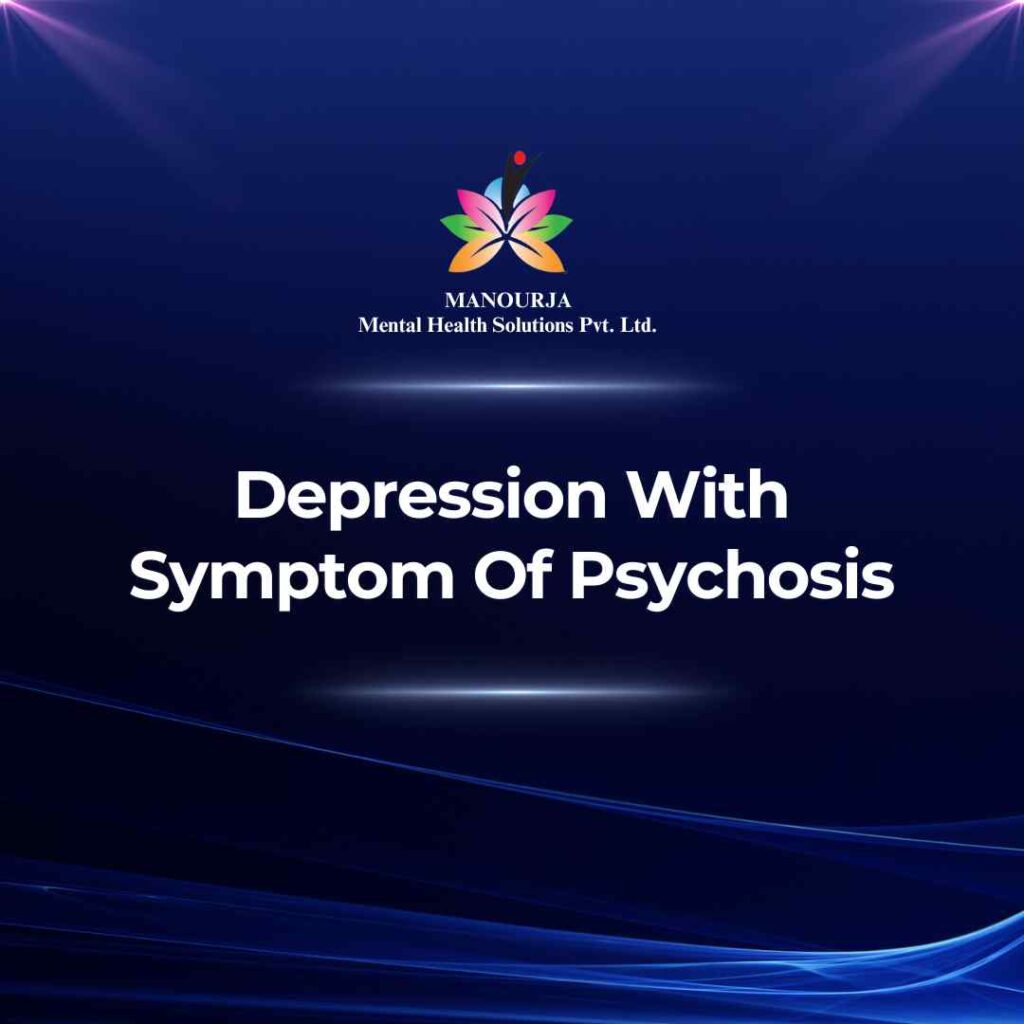Depression with Symptom of Psychosis

Depression with symptoms of psychosis, commonly referred to as psychotic depression, is a subtype of major depressive disorder that includes symptoms of psychosis. This severe form of depression goes beyond typical depressive symptoms by incorporating elements of psychotic experiences, such as delusions or hallucinations, which are usually consistent with the depressive themes such as guilt, poverty, or illness.
Meaning
Psychotic depression involves a combination of depressive and psychotic symptoms. The presence of psychosis can complicate the diagnosis and treatment, as it overlaps with symptoms found in other mental health disorders, such as schizophrenia or bipolar disorder. However, in psychotic depression, the psychotic symptoms are directly associated with the depressive state.
Characteristics
The symptoms of psychotic depression can include:
- Severe depression: Profound sadness, hopelessness, and a loss of interest in life; significant disturbances in sleep, appetite, and energy levels.
- Psychotic symptoms: Delusions (false, fixed beliefs that contradict reality) or hallucinations (seeing or hearing things that aren’t there), typically reflecting themes of depression like unworthiness or despair.
- Cognitive impairment: Difficulties with concentration and memory, slowed thinking.
- Physical immobility: In severe cases, the person may become so withdrawn that they remain motionless for extended periods, a state known as stupor.
- Anxiety: Often severe and may include physical symptoms.
- Social withdrawal: Avoiding social activities and interactions, leading to isolation.
Forms
Psychotic depression does not have formally recognized subtypes but can vary significantly in the nature and severity of both depressive and psychotic symptoms:
- Mood-congruent psychotic features: Psychotic symptoms are directly related to depressive themes (e.g., delusions of poverty or illness).
- Mood-incongruent psychotic features: Psychotic symptoms are not related to depressive themes (e.g., delusions of control or paranoia that do not involve themes of personal inadequacy or guilt).
Treatment
Treatment for psychotic depression requires a combination of antidepressant and antipsychotic medications, often supplemented by other forms of therapy:
- Medications: The most common approach involves a combination of antidepressants and antipsychotics. The precise medication regimen depends on the individual’s symptoms, response to previous treatments, and overall health.
- Electroconvulsive Therapy (ECT): For cases that do not respond to medication, ECT is often very effective in alleviating both depressive and psychotic symptoms. It is considered a safe and rapid treatment option for severe depression.
- Psychotherapy: While medications and ECT can address the acute symptoms of psychotic depression, psychotherapy (particularly cognitive-behavioral therapy) is crucial for helping the individual manage symptoms, address underlying issues, and develop coping strategies. It is also important for preventing relapse.
- Hospitalization: Due to the severity and risks associated with psychotic depression, including the potential for self-harm or suicide, hospitalization may be necessary to ensure the safety of the patient and to stabilize their condition under close supervision.
Managing psychotic depression is complex and requires a tailored approach that often involves a team of mental health professionals. Early and effective treatment improves the prognosis and can help manage the symptoms more effectively, enabling individuals to regain their functioning and improve their quality of life.
At MANOURJA, we believe in the transformative power of counseling. Our experienced therapists offer a safe and supportive space where you can explore your thoughts, emotions, and challenges. Through personalized counselling sessions, we’ll work together to develop coping strategies, build resilience, and achieve lasting positive change. Discover the path to a healthier, happier you with MANOURJA counselling services.
MANOURJA Rehabilitation Services
At MANOURJA, we’re dedicated to helping you in rebuild your life, after difficult times. Our rehabilitation services focus on understanding what you need to move forward, whether you’re recovering from addiction, trauma, or any psychological – social challenges. We create personalized plans, that are all about helping you, regain your strength and find hope again. With a caring team by your side, you’ll have the support to make real progress and take steps toward a brighter, healthier future.
